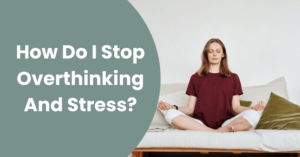Do you feel tired and in a bad mood, but can’t seem to figure out why? Are you living in a country with limited access to daily sunlight? Then you may be one out of a billion suffering from vitamin D deficiency.
If you’re lacking vitamin D and have symptoms such as increased fatigue, depression or low mood, weakness, bone pain, muscle cramps and insomnia – you may benefit from taking a vitamin D3 supplement and it may increase your energy levels. Vitamin D deficiency is a global public health issue and up to 1 billion people worldwide suffer from vitamin D deficiency. Taking a vitamin D3 supplement and spending more time in the sun may increase energy levels as well as considering supplements like ginseng, vitamin B12, iron, zinc, magnesium and Coenzyme Q10.
In order to address if vitamin D gives you energy, we’ll talk about signs of vitamin D deficiency, how vitamin D helps fatigue and the best way to increase vitamin D levels naturally. We’ll also talk about when to take vitamin D3, its dosage and potential side effects.
Does Vitamin D Help Fatigue?
Yes, a lack of vitamin D may increase fatigue, but increasing vitamin D through sun exposure and supplementation may improve several aspects of your wellbeing – including energy levels.
Vitamin D has multiple purposes as a nutrient and is not only something we absorb from the sun but also diet and supplementation. However, it’s mostly absorbed through the skin when exposed to ultraviolet B radiation.
According to studies, we absorb around 50-90% of vitamin D through sunlight and it’s recommended to get at least 20 minutes of sunlight a day with 40% of the body exposed, to prevent vitamin D deficiency.
Vitamin D acts as a hormone or ‘prohormone’ rather than a vitamin and is required to absorb both calcium and phosphate into the bloodstream. Vitamin D regulates calcium and phosphorus homeostasis through negative feedback with the parathyroid hormone. This is used to build and maintain bones and tissue.
Vitamin D plays a role in:
- The immune system
- The cardiovascular system
- The endocrine system
- Bone metabolism and skeletal muscles
- Metabolic pathways
- Depression and mood
- Pain
Multiple conflicting studies suggest that vitamin D deficiency may lead to cancer, cardiovascular disease, diabetes autoimmune diseases and depression.
Vitamin D deficiency is a global public health issue. About 1 billion people worldwide suffer from vitamin D deficiency while up to 50% have vitamin D insufficiency.
Lack of vitamin D can make us feel tired and fatigued – but why?
Chronic low vitamin D levels lead to declined absorption of calcium and phosphorus which can lead to hypocalcemia (low calcium). This can also lead to hyperparathyroidism where the parathyroid glands try to keep calcium levels normal. However, if that’s the case, it may lead to muscle weakness, cramps, fatigue and depression.
Disclaimer: If you suspect low levels of vitamin D or have any other health-related symptoms, I’ll recommend you talk to your healthcare provider.
Obviously, fatigue may happen for multiple reasons such as lack of sleep, nutrient deficiency, chronic diseases, adrenal fatigue, etc.
I believe finding the root cause of fatigue will have a better effect. However, if you suspect or know you’re one of the billions of people not getting enough vitamin D – what are the symptoms of vitamin D deficiency?
What Are The Signs You Need Vitamin D?
If you’re wondering whether you have vitamin D or not you may experience some symptoms including:
- Fatigue
- Depression
- Mood changes
- Bone pain
- Muscle weakness
- Muscle aches
- Muscle cramps
- Insomnia
- Hair loss
- Loss of appetite
- Sick more frequently
If you’re experiencing symptoms of vitamin D deficiency, I’ll recommend you to test your vitamin D levels through a blood test at your local doctor.
However, how is it possible to increase vitamin D naturally, to feel less fatigued and get more energy?
What Is The Best Way To Increase Vitamin D Naturally?
If you want to increase vitamin D naturally, there are a few ways to do so.
According to studies made by PubMed Central, adults less than 65 of age and who do not have year-round effective sun exposure should consume 600-800 IU of vitamin D3 daily to prevent any deficiency.
Adults older than 65 years are recommended to consume 800-1000 IU of vitamin D3 daily to prevent deficiency.
If it’s confirmed you may be vitamin D deficient and want to treat your vitamin D deficiency, you should be aware that the treatment depends largely on the degree of deficiency.
A high dose of vitamin D3 at 10.000 IU daily may be needed in high-risk adults who are deficient. This includes African Americans, Hispanics, and obese people, and if ingesting certain medications and malabsorption which may lead to a higher risk of vitamin D deficiency. When serum levels reach 30ng/mL, 3000-6000 IU a day to maintain levels may be recommended (source from PubMed Central).
Children deficient in vitamin D may require up to 2000 IU daily of vitamin D3 until levels exceed 30ng/mL and maintenance with 1000 IU is recommended according to PubMed Central.
Disclaimer: The specific dosage should be discussed with your doctor. Vitamin D is a fat-soluble vitamin that may lead to toxicity if consumed too high of a dose – although it’s rarely noted.
Furthermore, increasing your vitamin D levels naturally through the sun if possible may work wonders. This includes at least 20 minutes of sunlight daily on bare skin. Even if it’s cloudy, I recommend daily light exposure first thing in the morning, to regulate melatonin production, responsible for our sleep-wake cycle.
How Long Does It Take For Vitamin D To Give You Energy?
If you’re feeling tired and want to increase energy, it generally takes a few weeks to feel a difference when taking a vitamin D3 supplement daily.
If you’re looking for ways to increase your energy in general, looking at diet, stress levels, adrenal function, and sleep cycle may also be relevant.
Getting at least 7-8 hours of quality sleep may have a huge impact on energy levels. A diet containing high protein, complex carbohydrates and healthy fats with fruits and vegetables combined with supplements may be beneficial.
As mentioned earlier, there are multiple reasons for feeling fatigued – however, with lifestyle changes and supplements, you may increase energy levels.
These supplements include:
- Coenzyme Q10
- Iron
- Zinc
- Magnesium
- Vitamin B12
- Ashwagandha
- Ginseng (panax ginseng)
- Rhodiola
- Schisandra
If you decide to take vitamin D3 to increase your energy levels, when is the best time during the day to take it?
When Should I Take Vitamin D – Morning Or Night?
Vitamin D is a fat-soluble vitamin which means it’s better absorbed with oil or a meal containing fat when it comes to supplementation.
Vitamin D is absorbed better in the morning with a meal and may give you an extra spark of energy during the day.
When taking a supplement like a vitamin D, you have to be aware of possible side effects.
What Are The Side Effects Of Too Much Vitamin D?
Taking too much vitamin D may lead to vitamin D toxicity as mentioned earlier.
This can lead to a buildup of calcium in your blood (hypercalcemia), which may cause nausea and vomiting, fatigue, weakness and frequent urination. Essentially it can lead to kidney problems and pain in your bones.
However, vitamin D is generally considered safe to use.
Final Thoughts
If you’re lacking vitamin D, increasing vitamin D through supplementation and sunlight may boost your energy and prevent unpleasant symptoms.
Up to a billion people worldwide suffer from vitamin D deficiency. I personally recommend testing your vitamin levels through a simple blood test at the doctor.






